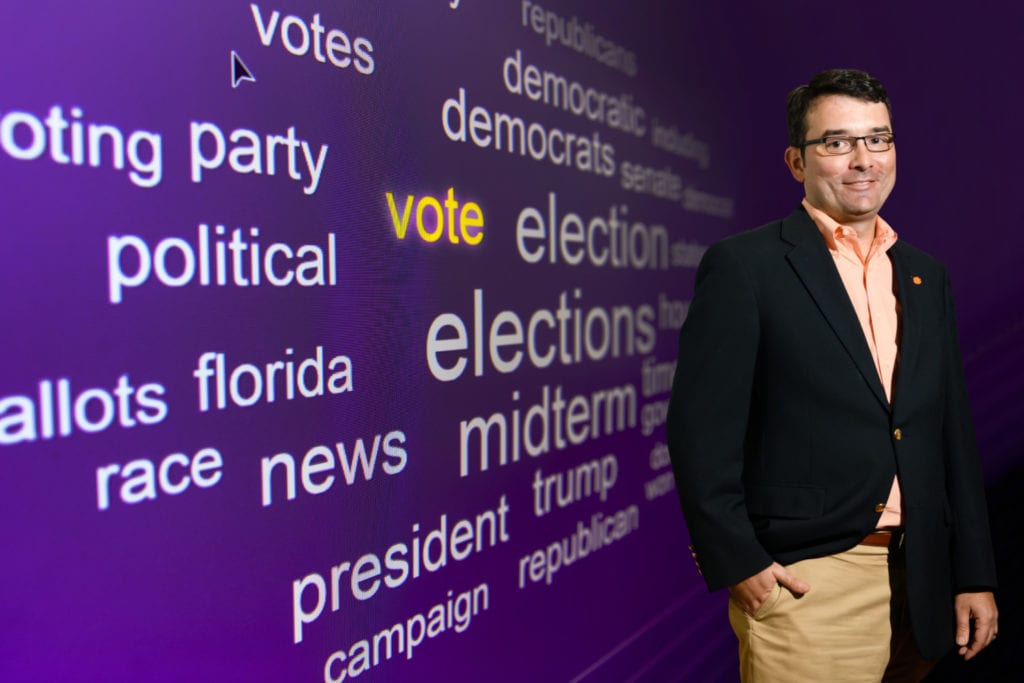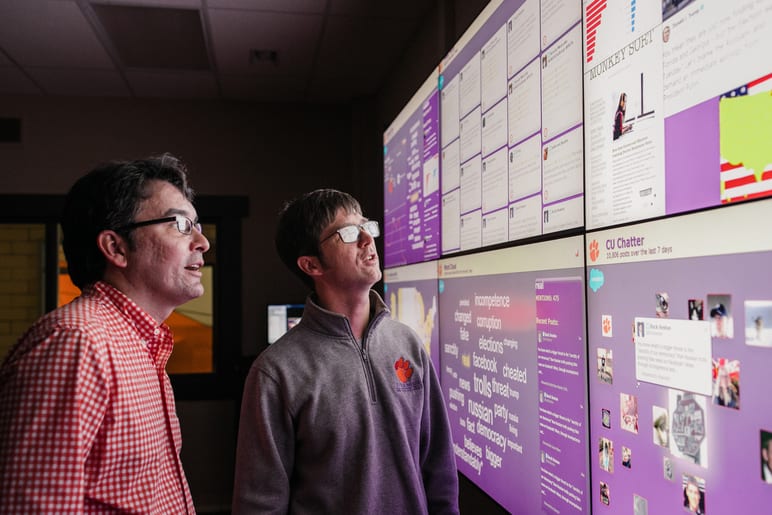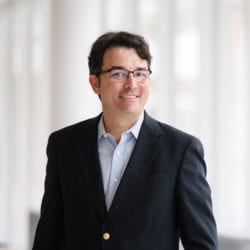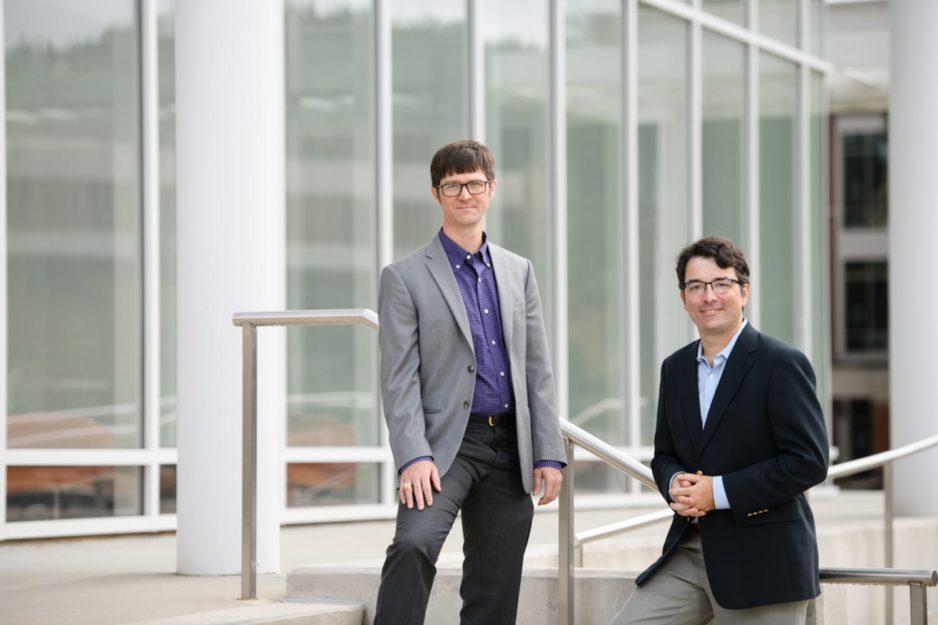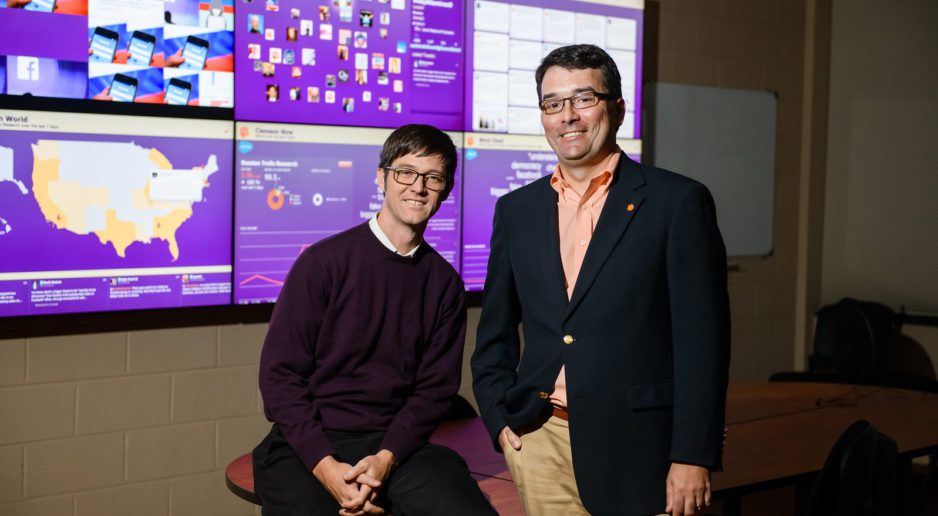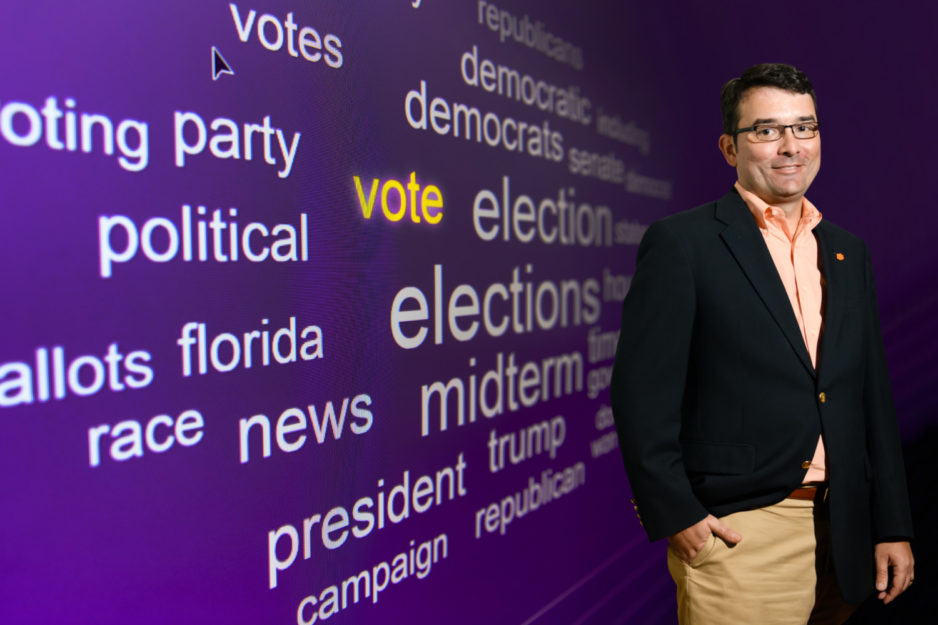Bio
Linvill investigates data messaging and context accompanied by inauthentic behavior on social media networks. His findings show how inauthentic behavior shares some of the same characteristics of authentic behavior coordinated online — or organized in real life and moved online. Exploring the exploitation of trust and social capital in social networks, he also examines misinformation and disinformation in the rising field of social media forensics and data monitoring. In collaboration, he has worked with social media companies and government entities to expose fake accounts and messaging that is counterfeit or inaccurate.
Linvill’s research examines how social media users treat people differently in the digital world than they do in the real world. With social media, users commonly make friends with social media profiles in which they may share some sort of interest, inviting them into their digital homes and social networks. Although these social media “friends” are really strangers and may not even be who they are perceived to be, they still have the ability to influence. Troll farms and bots take advantage of this knowledge and these “relationships” to disseminate propaganda in order to promote specific ideas and encourage actions or reactions.
Knowing government and organizational leaders take into account what they hear from their constituents and the public online, Linvill, along with his colleague Patrick Warren, works to identify and expose misinformation and disinformation intended to affect or disrupt policy, commerce and relations. With the Social Media Listening Center at Clemson University, Linvill has access to data that other institutions don’t have, and he can monitor and analyze a range of topics such as the spread of white supremacy to the influence of foreign states on American conversations.
In 2020, he and Warren partnered with the Commission on Presidential Debates to monitor social media conversations around the debates and help safeguard the 2020 election. Additionally, they have worked with Twitter and Facebook to suspend hundreds of social media accounts they have attributed to a range of bad actors, including the Russian Internet Research Agency.
In 2012, he published “Colleges and universities’ use of Twitter: A content analysis” in Public Relations Review. Recently, he has published numerous articles on misinformation and disinformation, including “That uplifting tweet you just sent? A Russian troll sent it” in Rolling Stone, “Yes, Russia spreads Coronavirus lies. But they were made in America” in The Washington Post and “Engaging with others: How the IRA coordinated information operation made friends” in The Harvard Kennedy School (HKS) Misinformation Review.
As a sought-after media expert, he’s contributed to many articles and broadcasts by outlets such as the New York Times, the Wall Street Journal, the Washington Post, Bloomberg, Inside Higher Ed, The State, CNN, NPR, ABC, NBC, WFAE and others.
Linvill became a lecturer at Clemson in 2007 and started studying social media in 2010. After becoming an associate professor in 2017, he delved deeper into the truth or falsity of online messaging and its effects.
